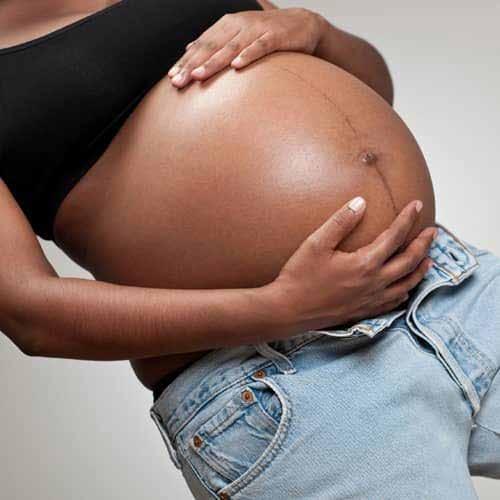
18 minute read
Young adults and teenage
Young adults and teenage corner
TEENAGE PREGNANCIES
Advertisement
TEENAGE PREGNANCIES ON THE RISE IN AFRICA
Teenage pregnancy continues to be a chal- .Violence against women are among the factors lenge for most countries especially those associated with a higher likelihood of unintended in Africa. When girls and women give birth inpregnancies. early they reduce their chances of getting academically empowered and most of their career 2. AT HOUSEHOLD FAMILY LEVEL opportunities are stripped off them. .Poverty (lack of family support) .Death of Parents So far due to the Pendemic (Covid-19) there has .Lack of communication with parents about sex been a significant rise in teenage pregnancies. encounters .Single parent family structure are associated WHAT IS TEENAGE PREGNANCY? with early- unintended pregnancies. Teenage pregnancy is when a woman under 20 years old gets pregnant. It usually refers to teens 3. STRUCTURAL FACTORS between the ages of 15-19. But it can include girls associated with the increased level of early pregas young as 9. It’s also called adolescent pregnan- nancy include cy. .Restrictive policies such as laws on age of concern for contraceptives WHAT IS THE MINIMUM LEGAL FRAMEWORK .Healthcare systems failures AROUND MARRIAGE IN ZIMBABWE ? .Inadequate access to contraceptives as well as On Wednesday 20 January 2016, the Constitutional epileptic availability and access to reproductive court ruled that section 22 of the Marriage Act is healthcare services. unconstitutional and therefore “ no person , girl or boy should be married before the age of 18”. PEER PRESSURE The ruling includes marriages under Customary Peer pressure could influence the typical teenagMarriages Act which had previously not had a er’s perception about sexuality so much so that minimum age requirement. teenagers tend to conform to the norms about sexual behavior which are deemed acceptable to SOME OF THE FACTORS CONTRIBUTING the peer group to which she belongs. Peer presTO TEENAGE PREGNANCY sure has been found to significantly influence teenage pregnancy. Parents and guardians should 1. AT COMMUNITY LEVEL be mindful of the friends their children associate .Poverty with. .Rural residence .Cultural norms that foster gender inequality
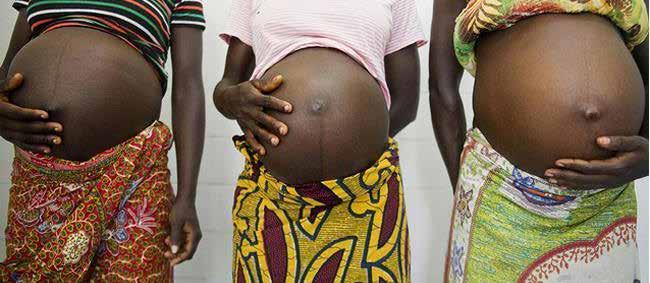
Educators, counsellors and stakeholders in the school setting should pay close attention to teenagers in this crucial stage of their development and apply tact in giving reorientation to pupils who exhibit character traits that are symptomatic of deficiencies in parental upbringing as this can curtail the influence they may have in their peers.
ABSENT PARENTS
A father’s absence ups a daughter’s risk for early sexual activity and teenage pregnancy, according to a recent long term study. Previous research has attributed a girl’s increased risk of pregnancy to the possible consequences of a father leaving - lower family income, conflict and
a weak parental monitoring.
POVERTY
In rural areas girls are sometimes married off to reduce their perceived economic burden, with their bride price (lobola) used by families as a means of survival. Usually girls from Zimbabwe’s poorest households are more likely to marry before the age of 18 than girls living in the richest households. Some of these teenagers become parents to their siblings when their parents die and these teenagers are forced to drop out of school and look after the younger ones. Sleeping in empty stomachs leads some of these teenagers to engage into sexual intercourse in exchange of money , groceries and paying bills for the family.

LACK OF COMMUNICATION AND SUPERVISION
Many adolescent girls become pregnant because they lack the information needed to make informed decisions about their sexuality, family planning, and their reproductive health services , while other are coerced into sex and require protection and access to health services and support.
FORCED MARRIAGES
a) RELIGION
Some churches still encourages girls as young as 10 to marry much older men for “spiritual guidance” Men in some of these churches are entitled to marry girls to shield them from pre-marital sex.
b) FAMILY HONOUR
If a girl engages in pre- marital sex, is seen with a boyfriend or returns home late, she is sometimes forced to marry to mitigate the shame. Some girls who fall pregnant choose to enter customary marriages because they are afraid their family will abuse them for dishonourable behaviour.
c) TRADITIONAL CUSTOMS
Virginity testing is still practiced in some parts of Zimbabwe. Girls who are found to no longer be virgins are shamed into wearing a mark on their forehead and are required to find another virgin for their husband to marry as compensation.
OBSERVATIONS
Adolescent sexual and reproductive health is an issue of immense concern globally and is part of the overall objective to achieve universal access to efficient healthcare services. Social, cultural, religious and economic factors have an important impact on the progress of sexual and reproductive health among adolescents. There is a growing number of unexpected pregnancies among secondary school students, translating into school drop outs, unsafe abortion, early marriages, child abandonment and different health issues associated with early age child bearing including martenal mortality. Discussions about providing secondary with condoms have intiated to promote safe reproductive and sexual health among secondary school students. There are uncertainties in regard to the future of the growing generation , on both sides of claimers , where some want to protect youth against risky sexual behaviours, while others want to preserve social and cultural norms, which are among the country’s identity.
Other people recognize distributing condoms as a last resort needed as a solution to protecting and promoting the sexual and reproductive health rights of the youth in secondary schools. As adolescents are considered to be sexually active and providing them with condoms is considered as the lack of societal norms and would mean that parents (and educators ) have failed their responsibilities.
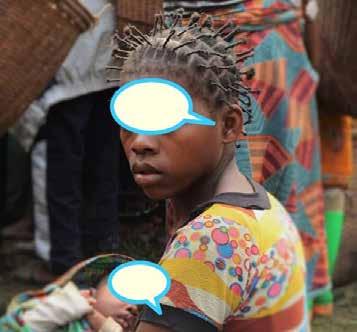
That’s the “MILLION DOLLAR “question of the decade.
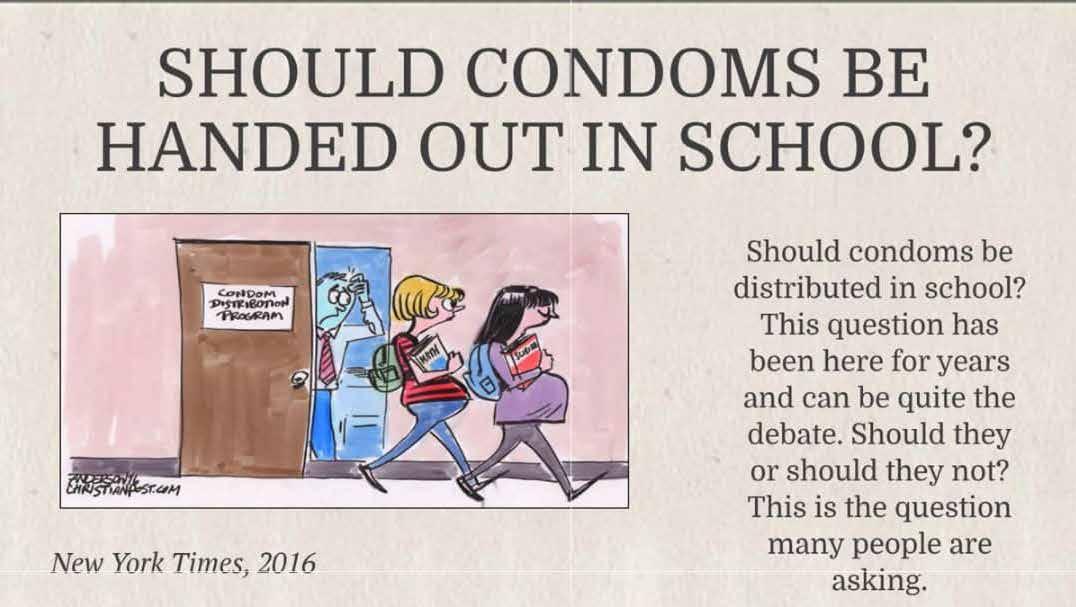
It is important to acknowledge that different socio- economic factors play a big role in youth intiation to sexual activity and this may be different from developed and developing countries.
Having said the above , below are some of the responses we got from different people in Zimbabwe about the topic (SHOULD CONDOMS BE DISTRIBUTED IN SECONDARY SCHOOLS?)
N.M
YES No matter how much we try to hide, the fact is that kids are engaging in sex much earlier than parents/guardians/young adults think. Its much better for them to be educated about the use of protection and prevention of diseases and mostly pregnancy. Having a baby changes dreams and best-laid plans. Obviously abstinence is the wish, but that’s not the reality.

T.K
NO! It’s a no for me, instead pads should be distributed I’m schools instead.
A.F
YES In response to TK’s answers , it’s rather better to give out condoms than pads, just looking at the rate of teenage pregnancy cases during this lockdown period makes us believe this can be one of the solutions to these teenage pregnancy issue. As I speak a number of teenage girls are going to school pregnant in my neighborhood.
E.E
NO! Distribution of condoms in schools It’s a no for me. It’s better for them to collect these condoms from health centres or for parents to collect on their behalf and give them at home.
A.S
NO! Let’s be practical who in their right minds as parents would give their kids condoms? Most parents fail to teach their own children about puberty and menstruation amongst other things, and you think they can sit down with their kids and talk about sex ?
S.S
YES! As for me its a big YES, you know why? Because its better to teach those teens how to practice safe sex than to start teaching them and giving them condoms after they get pregnant. You should know that these kids have already started indulging in sexual activities anyway. Someone said give them pads instead but are pads ways of protecting a child from getting pregnant?
ALEX BULAWAYO
NO! ITS A BIG NO FOR ME! Before I go deeper into this topic, let’s all take this moment and visualize what iam about to say. Imagine giving your child a condom as she goes to school everyday. Imagine the exchange of glances between you and her and imagine the words you tell her as you give her the condom or place it in her satchel or uniform pocket. So far how do you feel? I guess you felt the discomfort as you were reading and picturing that scenario. So there you have your perfect answer. Let all parents feel that same feeling you felt as you imagined giving your own child a condom. We say actions speak louder that words right?.
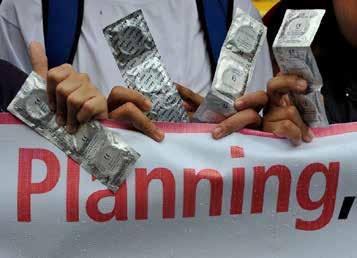
By giving your child that condom, are you not encouraging her to go and have sex? And tell me, will you be able to look her in the eye and say ‘my daughter take this’ and give her every single day of your life?
Aren’t you portraying your daughter as a sex addict or encouraging her to be one? Parents are role models to their children and when you give your child a condom, won’t she feel it’s alright to indulge in sex at that age and before marriage? Will she then value her virginity after this? Hence you the person she looks up to for advise and career guidance is giving her the go ahead to have sex tool? If you then catch your child watching pornography what then will you say to her? Will you stop her from watching or?
I feel that giving condoms to school children is also promoting those that haven’t indulged in sex to start planning to do so to feed their curiosity. This is how i visualize this, as it’s always best to visualize everything first to feel the impact, when you put yourself in the situation.
G.G
NO! Distributing condoms in schools is a motive for children to practise sex at school. The primary purpose of going to school is learning and doing sports, so they shouldn’t have time for sex. Most of these sexual active teenagers do not indulge in sex activities at school but homes and other secret places. So maybe these condoms should be accessible from community stores not in schools.
T.S
NO Teach them about God yes and also teach them about safe sex and abstaining. The real problem in parents is, you are never open and honest with your children. Do not tell the child not to indulge in sex only but tell them the disadvantages of having sex at their age and give them examples of people in the community who indulged and ended up pregnant, infected and maybe who died trying to abort or committed suicide. Sometimes it’s better to show your true experience with your teenage child, If you were a victim of these teenage pregnancy or if you indulged in sex in your teenage stage tell her the truth and what happened to you after, lying to her that you were straightforward and never indulged in sex in your teenage life is a disaster because when she finds out that you lied to her she can become rebellious. The problem is most mothers wants to potray themselves as saints yet they might have been wild during their time and they cannot talk about their past experiences to their children to protect their statuses.
CATCH US AGAIN IN OUR NEXT ISSSUE AS WE CONTINUE
WITH DISCUSSIONS ON THIS TOPIC (Should condoms be distributed to secondary schools)
STAY TUNED....
FOR MORE INFO, FEEDBACK, COMMENTS
Please like and follow our Pages FB PAGE - Vicious Collections INSTAGRAM- Vicious Collections TWITTER- @viciouscollect3

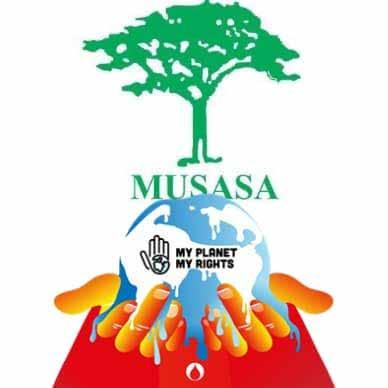
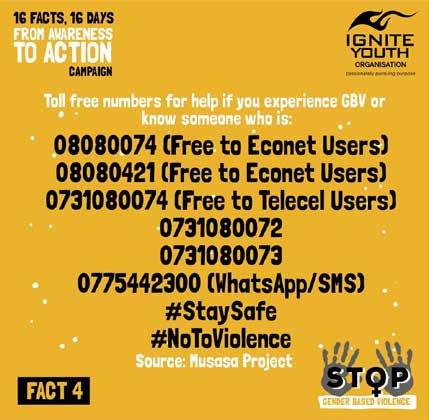
HERBS by Precious Mwakurudza.
Herbs have no side effects and they heal and repair damaged body cells at the same time restoring our health back to its original normal state.
Let’s remind each other to keep planting trees especially this rainy season trees grow very well. Let’s make it upon ourselves to plant at least 5 trees this season.
This month I will be talking about Mango tree. Mango trees are deep- rooted plants that may become large specimens in the landscape. They are evergreen and generally produced of stocks that increase the hardiness of the plants. Mango trees begin fruit production in three years and form fruit quickly. Mangifera lndica ( Mango tree) Originated from India and is now found mostly in tropical countries. It can grow up to 20 metres tall. Mango leaves are full of healing and medicinal properties These leaves contain vitamins C, A and B They can be boiled in water or can be consumed in powdered for. But who would have imagined that a sweet, juicy and delicious fruit like mango can also be a healthy superfood? Well, it’s true. It is rich in Vitamin A, Vitamin C and minerals like copper, potassium and magnesium. Not only this, mango leaves which you may often discard can actually work as a great herbal medicine. Mango leaves are full of healing and medicinal properties. Benefits of mango leaves are so varied and extensive that they are given immense importance in eastern medicine too. They are reddish or purplish when tender and new, and grow into a dark green color and have a pale underside. These leaves are fleshy and shiny with a sharp tip containing vitamins C, B and A. They are also rich in various other nutrients. These leaves have powerful antioxidant properties as they have a high content of flavonoids and phenols. They can be boiled in water to make a decoction or can be consumed in powdered form. In South East Asia, the tender leaves of the mango tree are cooked and eaten. Also for medicinal purposes young leaves should be used. But one has to be careful.

The antioxidant and antimicrobial properties of mango leaves can help treat various ailments effectively.
Here are 10 surprising benefits of mango leaves that you may have not known.
1. REGULATES DIABETES
Mango leaves are very useful for managing diabetes. The tender leaves of the mango tree contain tannins called anthocyanidins that may help in treating early diabetes. The leaves are dried and powdered, or used as an infusion to treat the same. It also helps to treat diabetic angiopathy and diabetic retinopathy. Soak the leaves in a cup of water overnight. Strain and drink this water to help relieve the symptoms of diabetes. It also helps in treating hyperglycemia.
2. LOWERS BLOOD PRESSURE
Mango leaves help lower the blood pressure as they have hypotensive properties. They help in strengthening the blood vessels and treating the problem of varicose veins.
3. FIGHTS RESTLESSNESS
For people suffering from restlessness due to anxiety, the mango leaves can be a good home remedy. Add few mango leaves to your bath water. This helps in relaxing and refreshing your body.
4. TREATS GALL AND KIDNEY STONES
Mango leaves help treat kidney stones and gall bladder stones. The daily intake of a finely ground powder of mango leaves with water kept in a tumbler overnight, helps in breaking the stones and flushing them out.
5. CURES RESPIRATORY PROBLEMS
Mango leaves are good for all kinds of respiratory problems. It is especially useful for people suffering from cold, bronchitis and asthma. Drinking a decoction made by boiling mango leaves in water with a little honey helps to cure cough effectively. It also helps in curing voice loss.
6. TREATS DYSENTERY
Mango leaves help in treating bleeding dysentery. Mango leaves dried in a shade should be powdered and then taken with water two to three times a day to stop dysentery.
7. REMEDY FOR EAR ACHES
Ear ache can be quite painful and frustrating. Using mangoes leaves as home remedy provides good relief. A teaspoon of juice extracted from mango leaves works as an effective ear drop and pain killer. Heat the juice slightly before using it.

8. HEALS BURNS
The simplest remedy for healing painful burns is to apply mango leaf ashes to the wounded area. This soothes the skin and brings relief.
9. STOPS HICCUPS.
If you’re troubled with frequent hiccups or other throat problems, mango leaves can be a great home remedy. Burn a few mango leaves and inhale the smoke. This helps to cure hiccups and throat problems.
10. GOOD FOR YOUR GUT.
Put some mango leaves in warm water, close the container with a lid, and leave it overnight. The next morning filter the water and drink this concoction on an empty stomach. The regular intake of this infusion acts as a good stomach tonic, flushes out toxins from your body
and keeps your stomach clean. 25
VICIOUS COLLECTIONS ISSUE 07


WHAT IS YOUR BLOOD TYPE?
Most people are actually realising that they do not know their blood type. Knowing your blood type can be crucial in a medical emergency, but it can also offer some interesting insight into your health. See how your blood type might play a role in your well-being, based on results of some recent studies. Blood types are determined by the presence or absence of certain antigens (proteins on the red blood cells) – substances that can trigger an immune response (cause your body to fight) if they are foreign to the body. There are four major blood groups determined by the presence or absence of two antigens – A and B – on the surface of red blood cells. In addition to the A and B antigens, there is a protein called the Rh factor, which can be either present (+) or absent (–), creating the 8 most common blood types (A+; A-; AB+; AB-; B+; B-; O+& O-) Your blood group is determined by the genes you inherit from your parents. Each biological parent donates one of two ABO genes to their child. The A and B genes are dominant and the O gene is recessive. For example, if an O gene is paired with an A gene, the blood type will be A. Other possible combinations of parents and outcome blood type below:-
Is it possible to have a different blood type from both your parents? Yes as illustrated below

Heart Disease
Of the eight main blood types, people with type O have the lowest risk for heart disease. People with blood types AB and B are at the greatest risk, which could be a result of higher rates of inflammation for these blood types. A hearty health lifestyle is particularly important for people with types AB and B blood.

Cancer
Studies have found that people with blood type A or AB are at higher risk for stomach cancer. Additionally, if you have A, B or AB blood types, you may have an increased risk for pancreatic cancer. If you fall in this grouping, stock up on caner fighting foods, which can help reduce the risk for developing cancer. The best cancer-fighting foods • Apples. • Berries. • Cruciferous vegetables. Carrots. Fatty fish bream Legumes: beans, peas

Stress
If you have type A blood, you may have more trouble handling stress. Those with type A tend to have heightened levels of cortisol, the stress hormone, in the body. There are small steps to reduce anxiety and stress and how to stay healthy. Like exercises, talking about it, downloading apps that help dealing with stress and playing with toys like spinners.Knowing your blood type is one more way to better understand and manage your health. While your blood type is a genetic gift that cannot be altered, making healthy choices can help you reduce the risks to your health.
Can blood type affect fertility?
A woman's blood group could influence her chances of getting pregnant, scientists have found. Those with blood type O may struggle to conceive due to a lower egg count and poorer egg quality, while those with blood group A seem to be more fertile. FSH levels greater than 10 suggest a woman will have more difficulty conceiving than those whose levels are under 10. A high FSH level indicates a diminished ovarian reserve, which refers to both egg quality and the number of eggs left available for fertilisation. Ovarian reserve tends to decline significantly as a woman reaches her middle and late 30s and faster in the early 40s. The study found that women who were blood type O were twice as likely to have an FSH level greater than 10 as those in any other blood group. The findings held true even when a woman's age was taken into account and the fact the women came from two different clinics. Meanwhile, those with blood group A were "significantly less likely" to have an FSH level greater than 10 than those who were blood group O.
Is there a blood type that causes miscarriage? Blood Incompatibility
When the mother has type O blood and the baby has B blood type or A blood type (from the father), research has found that there's a 20 percent incompatibility rate which could result in new born jaundice or a possible miscarriage.
Which blood groups should not marry?
People with Rh compound are termed as Rh positive and people without the Rh compound are known as Rh negative. It is very important that couples get their Rh checked before getting married or having a child, as it can raise complications in the baby. If the mother is rhesus negative and the father is rhesus positive, the baby can be rhesus positive causing the mother to be sensitised during delivery. This will cause miscarriages in future pregnancies.










